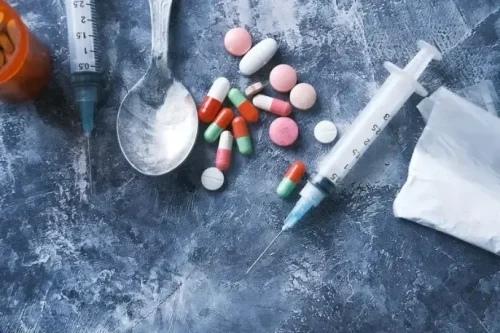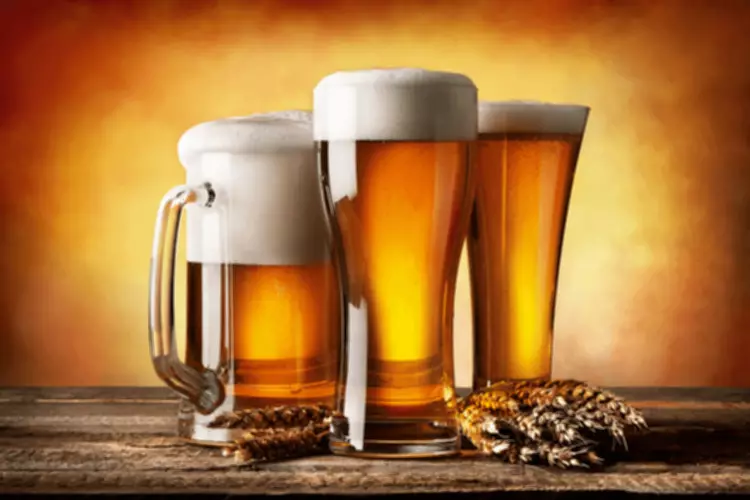
First, he knows hemp doesn’t get you high and that the drug war debate that swept up hemp was politically motivated, rather than policy-oriented. Second, Kentucky—the leader’s home state—is one of the best places to cultivate hemp in the world, and pre-prohibition the state had a robust hemp sector. Third, the grassroots interest in this issue was growing in Kentucky, and McConnell knows that his role as is cannabidiol addictive Senate Majority Leader hangs in the balance in 2020, as does his Senate seat as he faces re-election that same year. McConnell emerges from the Farm Bill as a hemp hero, but advocates should be hesitant to label him a cannabis champion; Leader McConnell remains a staunch opponent of marijuana reform and his role in the Senate could be the roadblock of Democratic-passed legislation in the 116th Congress.
A cheat guide to CBD
CBD won’t intoxicate you, but from a neuroscience perspective, CBD is absolutely psychoactive, psychotropic or whatever adjective you want to use to say that it affects the mind and behavior. Carbon dioxide is very efficient at stripping cannabinoids from plants, but it must be kept at cold temperatures — -70 degrees Fahrenheit — to stay liquid. Thanks to the “miracle” of reproduction, a hemp crop can start off making only CBD and then unwittingly turn into a THC-laden field of marijuana.
Overview: Chemicals in Cannabis Plants
There are at least four cafes within a 15-minute walk of the White House that sell CBD coffee. Haney warns that people should approach companies that sell CBD with skepticism. However, Blessing and Haney emphasize that products that are being sold as CBD are almost completely unregulated. Some products might even contain THC, which can interfere with medications and cause unwitting users to get high. However, Haney emphasizes that a lot still isn’t known about CBD — including the effects of long-term use, how it acts on the brain or its impact on brain development. “It’s unfortunate that there aren’t many options for consumers to ensure that CBD they buy is safe – or even has any CBD in it,” Blessing says.
What are the risks of using CBD oil?

Under the FD&C Act, any product intended to have a therapeutic or medical use, and any product (other than a food) that is intended to affect the structure or function of the body of humans or animals, is a drug. Drugs must generally either receive premarket approval by FDA through the New Drug Application (NDA) process or conform to a «monograph» for a particular drug category, as established by FDA’s Over-the-Counter (OTC) Drug Review. An unapproved new drug cannot be distributed or sold in interstate commerce. The U.S. Food and Drug Administration has issued warning letters to two companies for selling products labeled as containing cannabidiol (CBD) in ways that violate the Federal Food, Drug, and Cosmetic Act (FD&C Act). Specifically, the warning letters address the illegal marketing of unapproved drugs labeled as containing CBD.
- Sponsors developing drugs for life-threatening conditions are responsible for determining whether to make their products available to patients who qualify for access under RTT.
- Both compounds interact with your body’s endocannabinoid system, but they have very different effects.
- And what’s more, some companies are shipping these products across state lines, claiming that CBD products are perfectly legal.
- CBD went through this process in 2018 when it was approved as a drug for severe pediatric epilepsy and is currently undergoing clinical trials for other conditions.
- In clinical trials for Epidiolex, many research participants reported relatively mild side effects, such as fatigue and digestive issues.
- Currently, there’s very little evidence proving effectiveness for conditions other than some pediatric seizures,” says Igor Koturbash, MD, PhD, co-director of the Center for Dietary Supplements Research at the University of Arkansas for Medical Sciences in Little Rock.
- Hemp seeds and their oils have essentially zero cannabinoids and are only considered illegal if THC residue lands on them.
Is CBD legal? Here’s what you need to know, according to science

In one unblinded study of 23 patients with epilepsy, 85% of those treated daily for three months with CBD showed an improvement in sleep. However, the handful of RCTs to date studying sleep for people without epilepsy are inconclusive. One study of healthy volunteers found no effect of a single dose of CBD while another, of people with insomnia, found better self-reported sleep after one dose. A significant safety concern with CBD is that it is primarily marketed and sold as a supplement, not a medication.
Learn more about CBD and cannabis
- The IOM also found that the gateway drug theory was «beyond the issues normally considered for medical uses of drugs and should not be a factor in evaluating the therapeutic potential of marijuana or cannabinoids.»
- They’re also both considered safe, but consider the possible side effects and interactions with other drugs you take.
- In the United States, the classification of “hemp” is restricted legally to plants that contain less than 0.3 percent THC, although the CBD concentration of hemp is not controlled.
- Although it has been increasing, rigorous research on the therapeutic effects of cannabinoids in humans remains sparse.
- Ideally, following extraction, the resulting oil is purified to remove the solvent and any contaminants (e.g., heavy metals, pesticides) that may have been extracted from the plant along with the cannabinoids.
CBD product manufacturers have taken advantage of the federal legal gray area regarding the manufacturing, sale, and distribution of these products. The Farm Bill removed all hemp-derived products, including CBD, from the Controlled Substances Act, which criminalizes the possession of drugs. In essence, this means that CBD is legal if it comes from hemp, but not if it comes from cannabis (marijuana) — even though it is the exact same molecule. Currently, many people obtain CBD online without a medical marijuana license, which is legal in most states. Many unanswered questions and data gaps about CBD toxicity exist, and some of the available data raise serious concerns about potential harm from CBD.


FDA relies on applicants and scientific investigators to conduct research. The agency’s role, as laid out in the FD&C Act, is to review data submitted to the FDA in an application for approval to ensure that the drug product meets the statutory standards for approval. Your health and wellness is unique to you, and the products and services we review may not be right for your circumstances.

FDA warns 15 companies for illegally selling various products containing cannabidiol as agency details safety concerns
- Although industrial hemp is a variant of Cannabis sativa, selective breeding has resulted in divergence between plants used for fiber and those strains consumed by humans.
- However, the Controlled Substances Act gives the Department of Health and Human Services (HHS), as the successor agency of the Department of Health, Education, and Welfare, great power over rescheduling decisions.
- For example, hemp plants that are bred for industrial uses (e.g., fiber for textiles or rope) have a different appearance (e.g., they are taller and more fibrous stalks with thinner leaves) and typically do not have a high cannabinoid content (Figure 3).
- Oddly, however, the company likely cannot manufacture the drug yet, at least not in the United States.
- “We even analyzed products that specifically said, ‘THC-free,’ and several of them in fact were not,” says Babalonis.
- Ingredients not specifically addressed by regulation must nonetheless comply with all applicable requirements, and no ingredient – including a cannabis or cannabis-derived ingredient – can be used in a cosmetic if it causes the product to be adulterated or misbranded in any way.
- Rev. Krumm did not request that cannabis be moved to any specific schedule of control under the Controlled Substances Act (CSA) and has reserved his right to challenge any incorrect findings by the FDA and/or DEA whether Cannabis should even be regulated under the CSA.